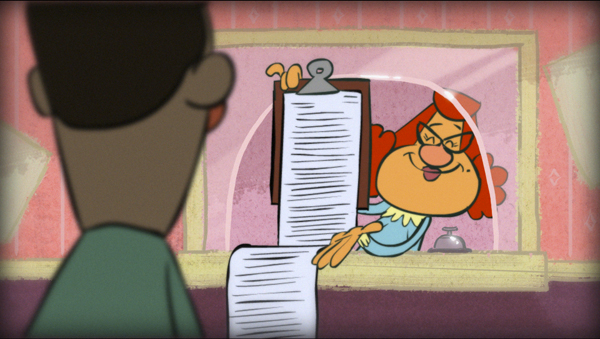![]() You know those things you click on all the time when you download a new app, establish an online banking, open a new social media account—“I Agree,” “Create an Account,” “Submit Information”—the things you never pay attention to and are merely irritating steps in the process to your goal? Yeah, those things.
You know those things you click on all the time when you download a new app, establish an online banking, open a new social media account—“I Agree,” “Create an Account,” “Submit Information”—the things you never pay attention to and are merely irritating steps in the process to your goal? Yeah, those things.
It turns out that if you were to actually read what the average person agrees to, it would take one full month of reading. That’s 182 hours a year. Not only that, but experts in typology agree that the type face and style of the agreement is one of the least readable and most intimidating. Cullen Hoback’s documentary Terms and Conditions May Apply looks closely at what we’ve agreed to in frightening detail.
Leigh Bryan was coming to American from the U.K. for a holiday. After arriving at customs, he was questioned for five hours, detained in a cell for 12 hours, and sent on a flight home. Why? He tweeted that he was going to “go and destroy America.” “Destroy” as in the English slang for partying.
Joe Lipardi is a comedian who, less than two hours after he jokingly posted on Facebook a quote from the film Fight Club about firearms, had a SWAT team at his door. They tore up his apartment, brought him in for questioning by Homeland Security, and Lipardi spent a year in court clearing his name of all charges.
A British professor of anthropology was arrested with 50 other people and questioned for 25 hours for simply thinking and exploring an idea for a street theater protest of the royal wedding of William and Kate—to take place nowhere near the actual event.
These are just a few examples of why we should care how our government, via Facebook, Google, and other companies, watches us, even if, or maybe especially if, we think we have nothing to hide. According to the film, there are about 15,000 points of data on the average American citizen, and the National Security Agency is constructing massive buildings in the Utah desert to house and store data. As one interviewee says, “Facebook is a dream come true for the CIA.” Billion dollar corporations are rich precisely because of the data they are collecting.
The film moves along at a fast clip, with interviews from relevant science fiction writers, hackers, CEOs, lawmakers, whistleblowers, directors of public policy, Google executives, and more. Multiple issues, including the Patriot Act and the differences in pre- and post-9/11 privacy, are explored. Sound bites from Presidents Bush and Obama, Mark Zuckerberg, and others add texture and highlight the contradictions between reality and platitudes put forth.
More than one person tells a version of the cautionary tale of the frog in the water that slowly boils, so slowly that the frog is dead as he has incrementally gotten used to the heat.
This fascinating, scary, thought-provoking, and über-relevant documentary is a must-see. The timing of its release couldn’t be better, thanks to the international spotlight Edward Snowden has brought upon the issue.







Leave A Comment